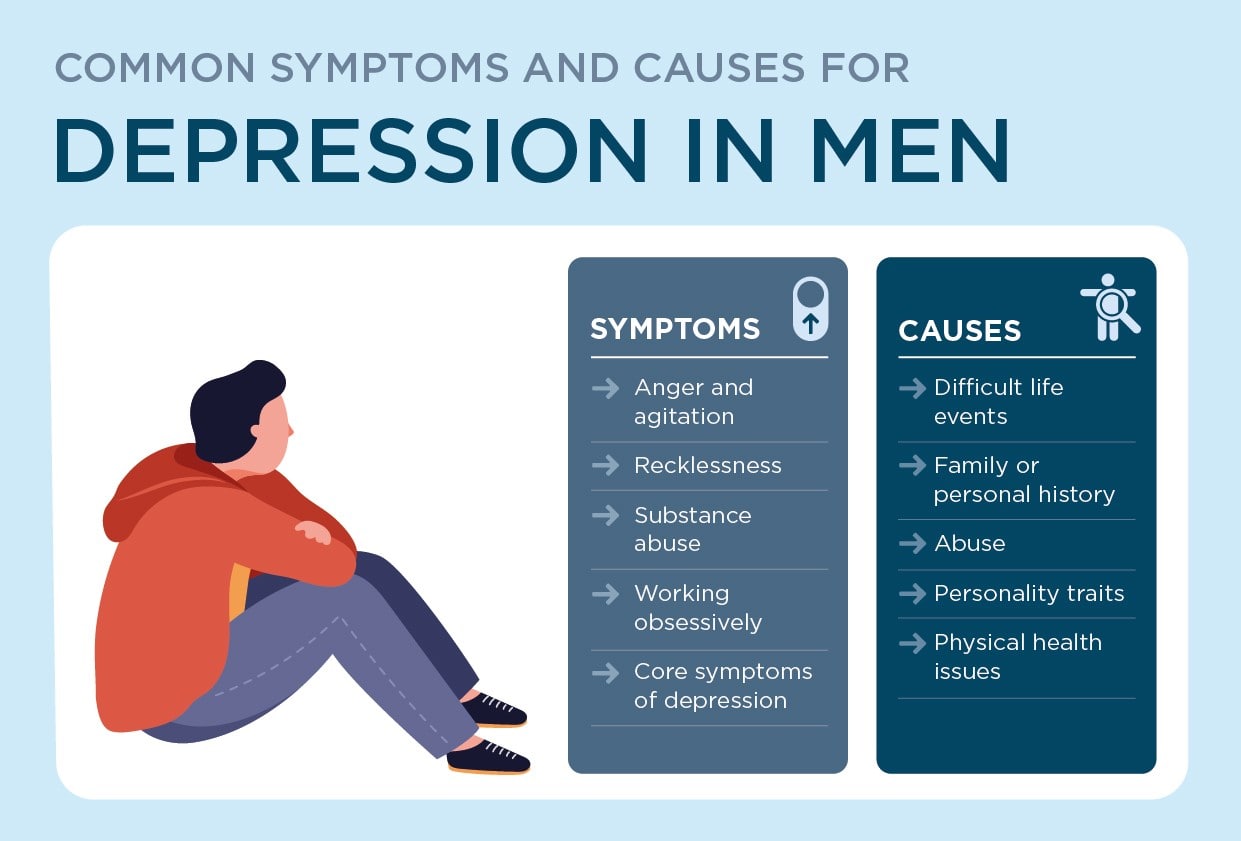What causes depression in men?
Causes of depression can vary between men and women, but many of the most common are consistent across both genders. Potential causes of depression include:
Difficult life events
Going through difficult life events such as divorce, losing your job or a bereavement, can be a common trigger for depression. After suffering an event like the above, the low mood you might develop can easily become depression – especially if you don’t have the necessary support.
Family or personal history
Research has shown that genes can play a role in how likely you are to develop depression. Those who have a close relative, such as a parent or sibling, who has struggled with depression are more likely to develop it themselves. There is no single depression gene; it’s more likely that several combine together with environmental factors to give rise to depression.
Abuse
Physical, sexual or emotional abuse are common triggers for depression, as is neglect or negative experiences during childhood. These experiences as a child can prevent you from developing the necessary coping strategies to deal with negative emotions, harming your mental health in adult life.
Alcohol consumption
Depression in men is often associated with excessive alcohol consumption. Excessive drinking can lead to problems in your relationships and working life which in turn can lead to depression.
It is recommended that people should drink no more than 12 units of alcohol per week and that people should have at least three alcohol free days per week. This means no more than two to three drinks, three to four times per week.
Alcohol is a chemical which is known to cause depression. As a form of self-medication, you might start drinking excessively in order to relieve symptoms of depression. However, done regularly this will only make the symptoms worse.
Excessive drinking can cause depression even in people who are not alcohol dependant, so it is recommended that anyone should drink no more than 12 units of alcohol per week and that you should have at least three alcohol free days per week.
Personality traits
If you tend to be someone who:
- Has low self-esteem
- Is especially anxious
- Is a perfectionist
- Is very self-critical
then these personality traits could mean you are more likely to develop depression.
Physical health
Chronic or life-limiting physical health problems can also lead to depression. Physical health problems can leave you feeling unhappy or sad if you’re condition has affected how you live your life. You might also feel resentful if you suffer from chronic pain, which in itself might damage your sleep and the relationships around you.
These issues can quickly develop into depression if support or relief is not forthcoming.










